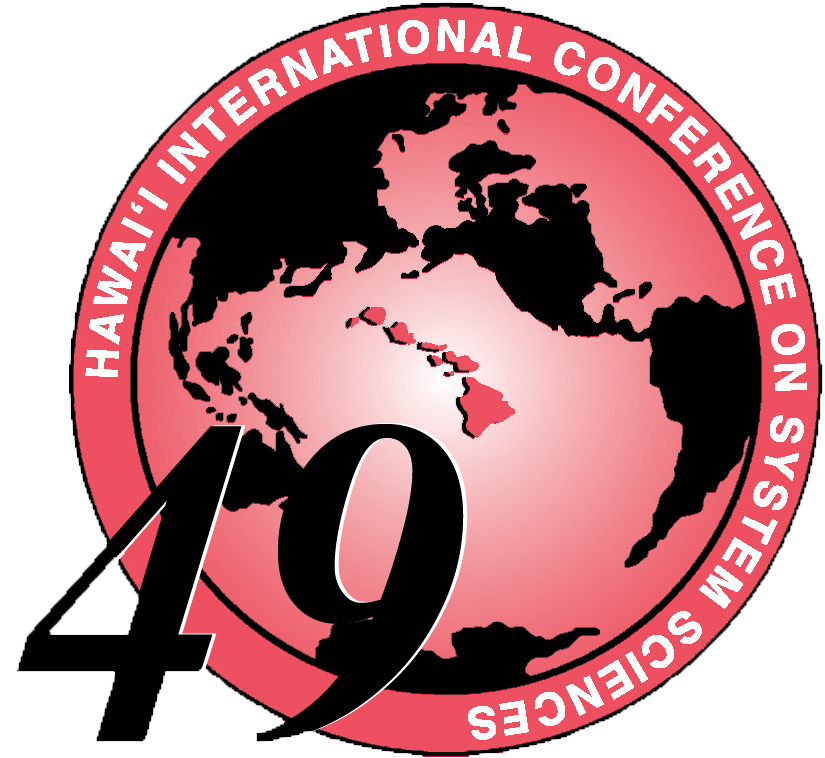HICSS - 49 E-Government Track
49th Hawaii International Conference on System Sciences
January 5-8, 2016 - Grand Hyatt, Kauai, HI, USA
Overview
Minitracks
Symposia and Workshops
Other Links
Resilience Against Crises and Disasters



The 21st Century has been termed “the century of disasters” (Jan Egeland, former United Nations tUndersecretary-General for Humanitarian Affairs and Emergency Relief Coordinator, February 2011). Worldwide there were twice as many disasters and catastrophes in the first decade of this century as in the last decade of the 20th Century. All continents are affected directly and indirectly. And the trend continues, fueled by climate change and social dynamics. A disaster is a serious disruption of the functioning of a community or a society involving widespread human, material, economic or environmental losses and impacts, which exceeds the ability of the affected community or society to cope using its own resources (Wikipedia). While most people think of disasters as precipitating events with a sudden onset, disastrous conditions can grow slowly from a protracted crisis and lead over time to situations that are as hard to manage as a sudden catastrophe.
The serious challenges facing government in cities, regions and nations of the world relate to acute shocks (such as forest fires, floods, earthquakes, tsunamis, pandemics and terrorist attacks) and chronic stresses (such as high unemployment, inefficient public transport systems, endemic violence, chronic shortages of food and water).
To deal with known risks and prepare for the unexpected, resilience is needed and it must be a central issue in the management of all phases of crises and disasters. The term ‘resilience’ can be described as “The ability of a system, community or society exposed to hazards to resist, absorb, accommodate to and recover from the effects of a hazard in a timely and efficient manner, including through the preservation and restoration of its essential basic structures and functions.” (UNISDR, 2009). This definition needs to be operationalized.
A convenient start point can be to assess resilience with regard the essential functions of a government, be it a city, a region or a nation:
- Meet basic needs of the citizens
- Safeguard human life and health
- Protect, maintain and enhance assets
- Engage citizens and foster cohesive communities
- Enforce the rule of law and justice
- Generate and share information and innovation
- Support livelihoods
- Foster economic prosperity
More information on the mini-track chairs:
Jose J. Gonzalez, dr.rer.nat., University of Kiel, Germany, dr.techn., Norwegian University of Science and Technology, Norway, has long experience as professor of ICT and information security at the University of Agder and as adjunct professor of information security at Gjøvik University College, both in Norway. He founded and directed 2011-2014 the Centre for Integrated Emergency Management at the University of Agder, http://ciem.uia.no, an interdisciplinary research centre with a strong representation in information systems, IT technology and humanitarian science. Dr. Gonzalez has published in leading journals and conferences on system dynamics modeling, information security, critical infrastructure, organizational learning and Interactive Training Environments. Many of these papers are the result of international cooperation involving an extensive network of German, Norwegian, Spanish, Swedish and American partners. Among the most recent large-scale projects led and coordinated by Dr. Gonzalez are AMBASEC (funded by the Research Council of Norway and the Norwegian Oil Industry Association), dealing with incident response and handling in Integrated Operations in the oil & gas sector. Dr. Gonzalez also participated in the recent SEMPOC project, funded by the EU through the European Programme for Critical Infrastructure Protection.
Emma S. Spiro, PhD, is an Assistant Professor at the University of Washington Information School. She is also an Adjunct Assistant Professor in the Department of Sociology, and an affiliate of the UW Center for Statistics and the Social Sciences. Dr. Spiro studies online communication and information-related behaviors in the context of emergencies and disaster events. Her work also explores the structure and dynamics of interpersonal and organizational networks in both online and offline environments. Her research has been published in Social Networks and the International Journal of Information Systems for Crisis Response and Management. She has also won Best Paper awards at WebScience and the Neural Information Processing Systems Workshop on Social Media and Social Networks. Dr. Spiro earned her Ph.D. in Sociology from the University of California, Irvine. She also holds a B.A. in Applied Mathematics and a B.A. in Science, Technology, and Society from Pomona College, as well as an M.A. from the Institute for Mathematical Behavioral Sciences at University of California, Irvine.
Elsa Negre, PhD, received her Ph.D. in Computer Sciences in 2009 from Université François-Rabelais de Tours, France. She was a postdoctoral fellow at Université du Québec en Outaouais (UQO), Canada in 2010-2011, then at Laboratoire d'Informatique Nantes-Atlantique (LINA), France in 2011. She is currently an Assistant Professor at Université Paris-Dauphine, France. Her research interests include recommender systems, similarity measures, information systems and knowledge management, data warehousing and social network analysis, early warning systems and smart cities. Dr. Negre authored and co-authored more than 20 publications in refereed journals and conferences.
Co-Chairs
Jose J. Gonzalez
(Primary Contact)
University of Agder
Centre for Integrated Emergency Management
Service Box 509
NO-4898 Grimstad, Norway
Email: josejg@uia.no
Emma Spiro
University of Washington
The Information School
Mary Gates Hall, Ste 370
Seattle, Washington 98195, USA
Phone: +1-206-616-7395
Email: espiro@uw.edu
Elsa Negre
Université Paris-Dauphine LAMSADE
Bureau B-220ter
Place du Maréchal de Lattre de Tassigny
75775 Paris Cedex 16, France
Phone: +33-1-4405-4184
Email: elsa.negre@dauphine.fr
